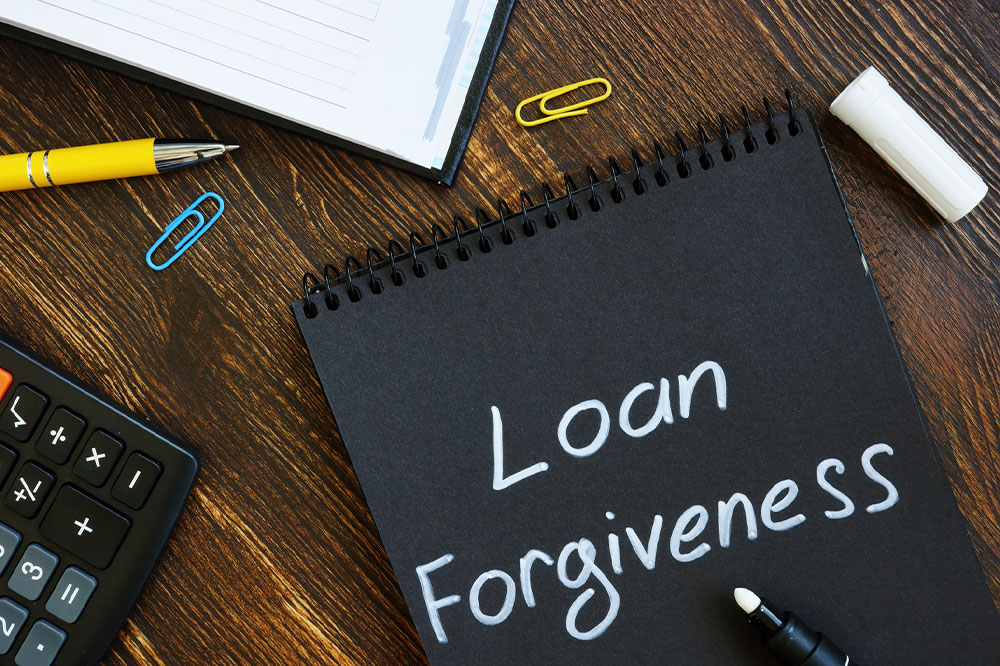Best Programs for Student Loan Forgiveness
Student loan forgiveness or discharge means you are no longer required to repay some or all of your student loan. It might sound too good to be true, but it is possible. Usually, people with jobs that serve the community, like doctors, teachers, social workers, or police officers, are eligible for these concessions.

Programs for student loan forgiveness
The following are a few programs that can help you cancel your student loans and save money:
Public service loan forgiveness
Also known as PSLF, it is a program by the federal government for Direct Loans. Those who work in a government or not-for-profit organization are eligible for this scheme. However, you should have made 120 qualifying monthly payments while working full-time for a qualifying employer. Applicants must also fill out the PSLF form every year as proof of meeting the requirements.
Federal Perkins student loan forgiveness
Your school is the lender for Federal Perkins loans. So, you must contact the financial aid office at the school that administered the Perkins loan to check if you are eligible for a discharge. You will be eligible for Perkins loan forgiveness in case you are in services like:
Firefighters, soldiers in dangerous areas, or law enforcement officers
Doctor, nurse, or medical technicians
Peace Corps volunteer or attorney in a federal, public, or community defender organization
Teacher in a public or nonprofit organization that serves disabled children
Teacher loan forgiveness
The teacher loan forgiveness program cancels up to $17,500 in Direct Subsidized and Unsubsidized loans. However, to qualify, you must teach full-time for five consecutive academic years in a low-income educational service agency, elementary, or secondary school. Special education teachers can also apply for this scheme.
Disability discharge or discharge due to death
Direct Loans, Perkins loans, and forgiveness for FFEL loans are possible if the student or borrower passes away before repaying the amount. Students who become permanently disabled are also eligible for concessions under this program. However, relevant documentation is needed in such cases.
Forgiveness due to forgery or false certification
According to the US Department of Education, victims of identity theft are eligible for forgiveness of Direct Loans, FFEL loans, and Federal Perkins loans. It means if a loan is fraudulently made in your name, you qualify for this scheme.
Forgiveness due to bankruptcy
Loan discharge in case of bankruptcy is available for Direct Loans, Perkins loans, and FFEL loans. However, you need to file an adversary proceeding in a bankruptcy court. It means that you must prove that repaying the amount would cause undue hardship and affect your and your dependants’ standard of living.
Borrower defense loan discharge
You are eligible for this federal program if you took a loan to attend a school, but the school misled you or violated state law. You must produce information such as the school’s name, enrollment dates, and other documentation to apply.
Those who keep up with monthly payments for several years and manifest good repayment behavior are more likely to qualify for a forgiveness program. If your application is rejected, you remain responsible for repaying the loan.
Options for student loan consolidation and refinancing
Try this option if you do not qualify for student loan forgiveness and have multiple loans to repay. Loan consolidation means combining numerous loans and paying a single monthly installment. Here are a few options that enable this:
Medical school loan consolidation
Suppose you have taken many loans to study and become a doctor at a medical school. In that case, first check if you qualify for forgiveness under the public service loan forgiveness (PSLF) program or other schemes mentioned here, like bankruptcy or identity theft. If not, do not worry. Many banks and financial institutions help consolidate those loans to help bring down the amount.
Another solution is to opt for the pay as you earn (PAYE) scheme. PAYE allows medical residents to cap monthly student loan payments at 15% or 10% of their discretionary income.
Private school loan consolidation
Getting forgiveness for school loans taken from private lenders can get tricky, as they might not be eligible for bankruptcy. So, the best thing to do is consolidate these loans and pay a lower monthly installment. Many lenders also provide repayment plans based on your income. In repayment plans, you pay a large chunk of debt over a long period and get a portion forgiven at the end.
Now that you know the various concessions available for loan repayments, apply for one based on your need. Compare different forgiveness, cancellation, or college loan consolidation programs and do further research. Also, check with an expert to avoid confusion. Then, if you qualify for student loan forgiveness of the entire amount, hurray! You are no longer accountable for loan payments.











